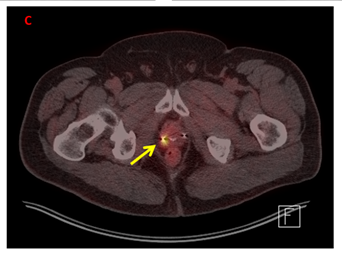
Weight loss in the first year after starting androgen deprivation therapy in men who have undergone radical surgery for prostate cancer ups the risk of metastatic disease and death from prostate cance
Weight loss during the first year following initiation of androgen deprivation therapy (ADT) in men who have undergone radical surgery for prostate cancer (PCa) is associated with poor prognoses, new data suggest.
Compared with mild weight gain (defined as 0–2.2 kg), any weight loss was associated with a significant 3-fold increased risk of metastases, 4.7-fold increased risk of PCa-specific mortality (PCSM), and 2-fold increased risk of death from any cause, after adjusting for multiple variables, a team led by Stephen J. Freedland, MD, of Cedars-Sinai Medical Center in Los Angeles, reported in Cancer Causes & Control.
The investigators said they did not anticipate finding that weight loss was associated with these increased risks. They had hypothesized that weight gain during the first year following the start of ADT would be associated with an elevated risk of metastases, development of castration-resistant PCa (CRPC), and PCSM, but found no evidence to support this view.
The study is the first to examine the effect of weight change following ADT initiation on long-term outcomes, Dr Freedland’s team noted.
“If confirmed in other studies, these results would suggest that weight loss after ADT is a poor prognostic sign, and more importantly highlights the need for additional investigations to determine the underlying mechanisms that link the weight loss with poor outcomes,” Dr Freedland and his collaborators wrote.
The study included 357 men in the SEARCH (Shared Equal Access Regional Cancer Hospital) program, a retrospective cohort of men undergoing radical prostatectomy from 1988 to 2014 and follow-up through 2016 at 6 Veterans Affairs hospitals. A previous study of men in the SEARCH cohort by Dr Freedland and colleagues, which was published in BJU International in 2012, found that obesity at the time of ADT initiation is associated with an increased risk of CRPC.
In the current study, the median age at ADT initiation was 65 years. Of the 357 men, 113 (32%) experienced weight loss after ADT initiation, 72 (20%) had mild weight gain, and 172 (48%) had moderate-to-severe weight gain (2.3 kg or more). During a median follow-up of 81 months from the start of ADT, metastases developed in 55 patients, CRPC developed in 61, 36 died from PCa, and 122 died from any cause. The median number of months from ADT initiation to post-ADT weight loss or gain was about 12 months.
Reference
Griffin K, Csizmadi I, Howard LE, et al. First-year weight loss with androgen-deprivation therapy increases risks of prostate cancer progression and prostate cancer-specific mortality: results from SEARCH. Cancer Causes Control. 2019; published online ahead of print.





